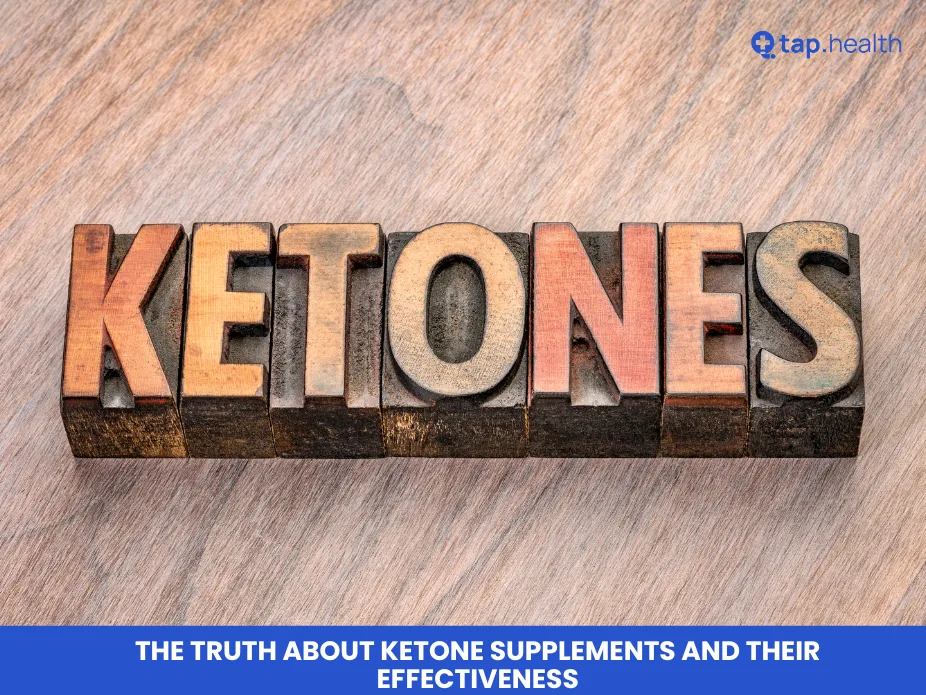What Are Ketone Supplements and How Do They Work?
Ketone supplements, also known as exogenous ketones, are products designed to raise blood ketone levels without requiring a strict ketogenic diet. The most common form is beta-hydroxybutyrate (BHB) bound to mineral salts (sodium, potassium, calcium, or magnesium). These supplements provide an external source of ketones — the same fuel your body produces naturally during fasting or carb restriction.
Unlike natural ketosis, which forces your liver to produce ketones from stored fat, exogenous ketones deliver ready-made fuel directly into your bloodstream.
Do Ketone Supplements Really Boost Fat Burning and Weight Loss?
Many people buy ketone supplements hoping for faster fat loss. The theory: elevated ketones signal your body to burn fat.
Reality check: While BHB supplements reliably increase blood ketone levels (often to 1–3 mmol/L), studies show they do not significantly increase fat oxidation or create meaningful weight loss on their own. A 2018 study in The Journal of Physiology confirmed ketone drinks raised blood ketones but had no extra effect on fat metabolism compared to placebo.
Bottom line: Ketone supplements don’t replace the calorie deficit needed for sustainable weight loss.
Can Ketone Supplements Improve Athletic Performance?
Results are mixed but context matters.
Endurance athletes sometimes report benefits. Research published in Cell Metabolism (2016) showed ketone esters improved cycling performance over 30–60 minutes in trained athletes by sparing glycogen and reducing lactate buildup. However, multiple studies on high-intensity efforts (sprints, weight training) show no benefit or even slight performance decline.
Best use case: ultra-endurance events or long training sessions when glycogen is low.
Do Exogenous Ketones Enhance Mental Clarity and Focus?
The brain loves ketones as an efficient fuel source. People on ketogenic diets often report sharper focus and stable energy.
With supplements: short-term cognitive boosts are possible, especially in older adults or those with mild cognitive impairment (Frontiers in Neuroscience, 2020). But in healthy, young individuals, most users notice little to no difference in daily mental performance.
Are Ketone Supplements Helpful for Appetite Control?
Some users experience reduced hunger, likely because elevated BHB influences ghrelin (hunger hormone). However, evidence is preliminary and inconsistent. Appetite suppression, when it occurs, tends to be mild and temporary.
What Does the Latest Science Say About Long-Term Effectiveness?
Current research (2020–2025 reviews) concludes:
- Exogenous ketones reliably raise blood ketone levels
- They provide a quick alternative fuel source
- They do not independently drive fat loss or muscle preservation
- Performance benefits are niche (ultra-endurance only)
- Cognitive and therapeutic benefits are most promising in clinical populations (Alzheimer’s, epilepsy, type 2 diabetes)
Are Ketone Supplements Worth It for Diabetes Management at TapHealth?
For people living with type 2 diabetes or prediabetes, the answer is more nuanced. Exogenous ketones can offer a rapid, carbohydrate-free energy source and may improve insulin sensitivity in some contexts. Small pilot studies show BHB salts can lower post-meal glucose spikes when combined with a low-carb meal. At TapHealth, we see select patients benefit from short-term use during prolonged fasting or exercise, but they are never a substitute for medication, diet, or lifestyle changes.
Always consult your doctor before adding ketone supplements if you have diabetes.
Final Verdict on Ketone Supplements Effectiveness
Ketone supplements work — they raise blood ketones quickly and reliably. But they do not magically accelerate fat loss, transform athletic performance across the board, or turn you into a mental superhuman.
They are a tool with specific, limited applications:
Bridging the gap while adapting to a ketogenic diet
Ultra-endurance training
Therapeutic ketosis support
Sources:
- Journal of Physiology: Ketones and Fat Loss
- Cell Metabolism: Ketone Ester Supplementation
- Frontiers in Neuroscience: Ketones and Cognitive Function
FAQs About Ketone Supplements
Q1: What are the main types of ketone supplements?
The two main types of ketone supplements are BHB salts and BHB esters, with salts being more common and affordable.
Q2: Can ketone supplements help with weight loss?
Ketone supplements may increase fat burning temporarily, but they are not a substitute for a healthy diet and exercise. A caloric deficit is still necessary for sustainable weight loss.
Q3: Are there any side effects of ketone supplements?
Some people may experience digestive upset, such as bloating or diarrhea, especially with higher doses of BHB salts. It’s best to start with a lower dose and gradually increase.
Q4: Do ketone supplements improve athletic performance?
Some studies suggest that ketones can enhance endurance in long-duration activities, but the impact on high-intensity exercise is less clear.
Q5: Are ketone supplements safe?
Generally, ketone supplements are considered safe for healthy individuals. However, always consult a healthcare provider before starting a new supplement regimen, especially if you have underlying health conditions.



